All Publications
Publications from the IAU hold significant value for the global academic community. They provide critical insights into higher education trends, policies, and challenges worldwide. By fostering a comprehensive understanding of the worldwide higher education landscape, IAU publications help shape informed policy-making and institutional strategies. Additionally, these publications promote international collaboration and knowledge exchange, enhancing the quality and accessibility of education globally. The IAU's authoritative reports, research papers, and policy briefs are essential resources for educators, administrators, and policymakers striving to advance higher education in a rapidly evolving world.
The following IAU Publications are written by IAU Board Members, expert or working groups, Secretariat Members or in collaboration with Members. Read on to discover articles or papers written in collaboration with or about the IAU; the latest editions of the IAU Magazine, IAU Horizons; the quarterly publication Higher Education Policy (HEP); Policy Papers; and Annual Reports.
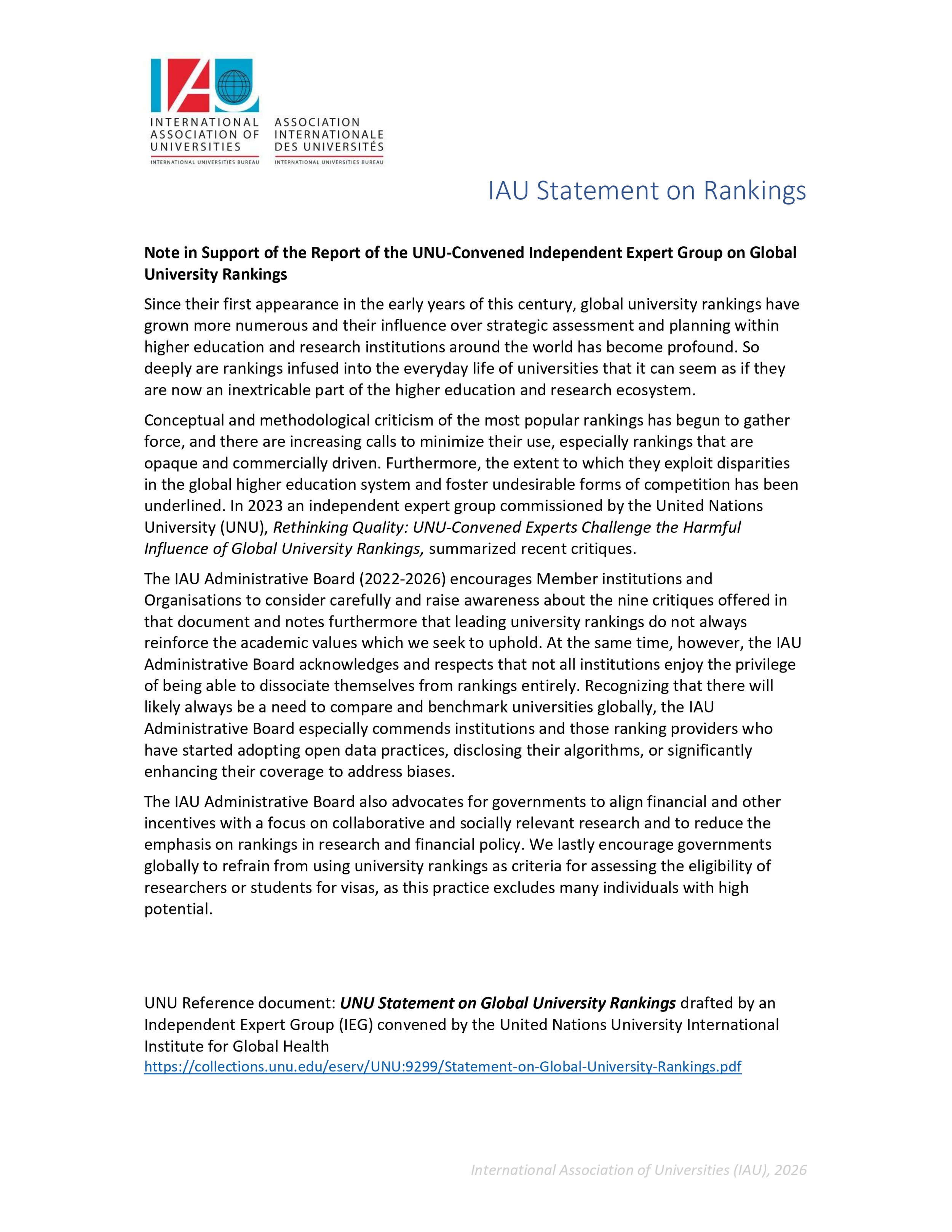
Note on Rankings
Note in Support of the Report of the UNU-Convened Independent Expert Group on Global University Rankings
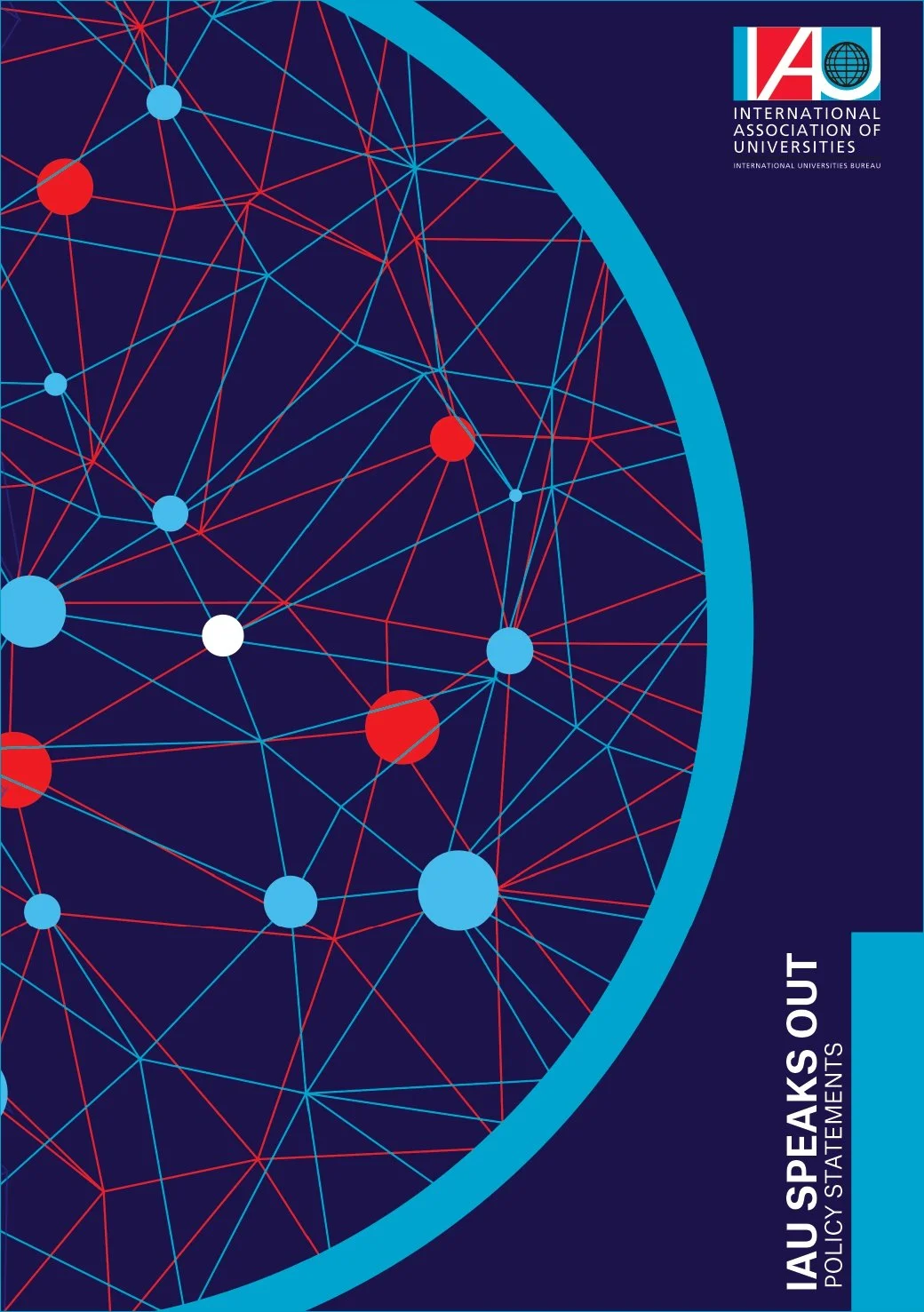
IAU Speaks Out
The mandate of the International Association of Universities includes taking a public stand on issues of importance to its membership – higher education institutions and university organisations from around the world. To fulfill this advocacy function, Working Groups set up by its Administrative Board help IAU elaborate policy statements that call for changes and improvements within the higher education institutions or within the broader policy framework which sets the context for higher education development.
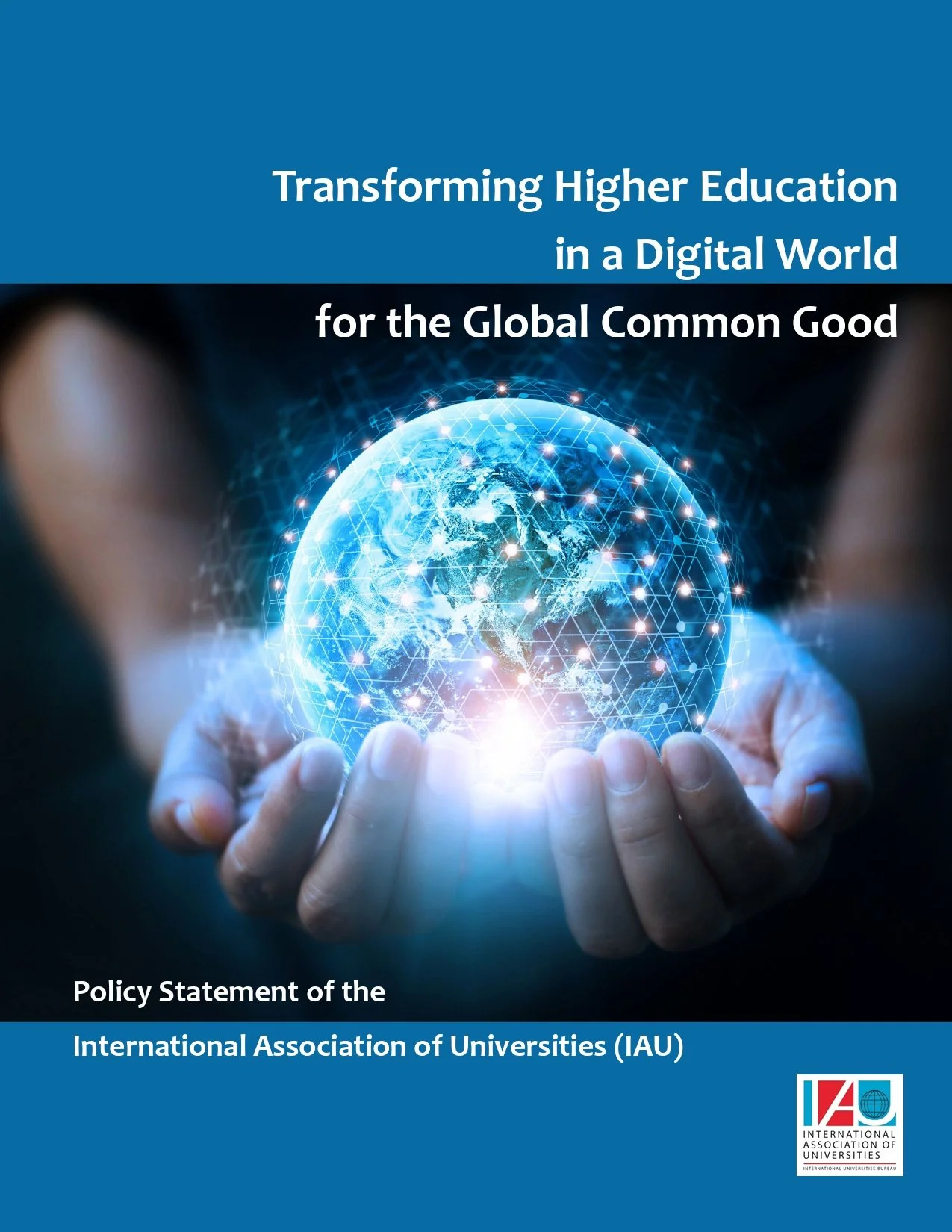
Statement on the Transformation of Higher Education in the Digital Era
Digital transformation is one of the four strategic priorities of the International Association of Universities (IAU). The COVID19 pandemic has - as never before - accelerated digital transformation of higher education and it is an opportune moment to reflect how we wish to shape the future of higher education in an increasingly digital world. This IAU Policy Statement was developed to outline essential values and principles that must underpin the digital transformation.
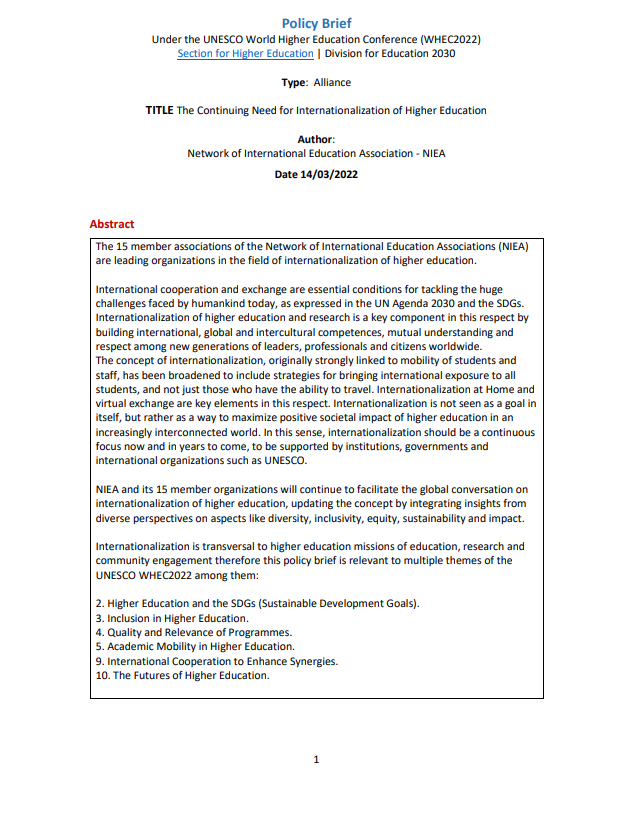
The Continuing Need for Internationalization of Higher Education
International cooperation and exchange are essential conditions for tackling the huge challenges faced by humankind today, as expressed in the UN Agenda 2030 and the SDGs. Internationalization of higher education and research is a key component in this respect by building international, global and intercultural competences, mutual understanding and respect among new generations of leaders, professionals and citizens worldwide.
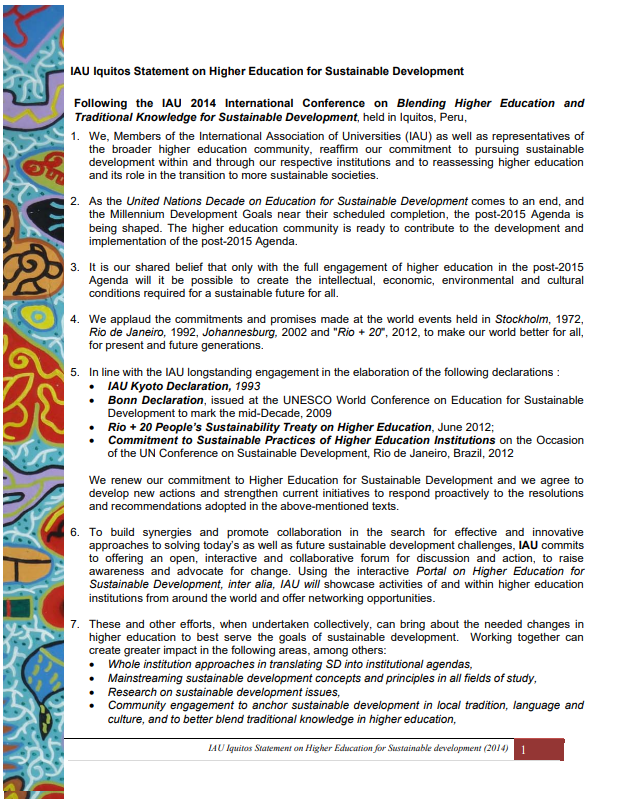
Iquitos Statement on Higher Education for Sustainable Development
Following the IAU 2014 International Conference on Blending Higher Education and Traditional Knowledge for Sustainable Development, held in Iquitos, Peru, this statement reaffirms the commitment of IAU and the higher education community at large to pursuing sustainable development within and through their respective institutions, and to reassessing higher education and its role in the transition to more sustainable societies in the context of the UN Agenda 2030. It fueled debate at the UNESCO 2014 World Conference on Education for Sustainable Development (Aïchi Nagoya, Japan) and was adopted officially at the IAU 15th General Conference in Thailand, in 2016.
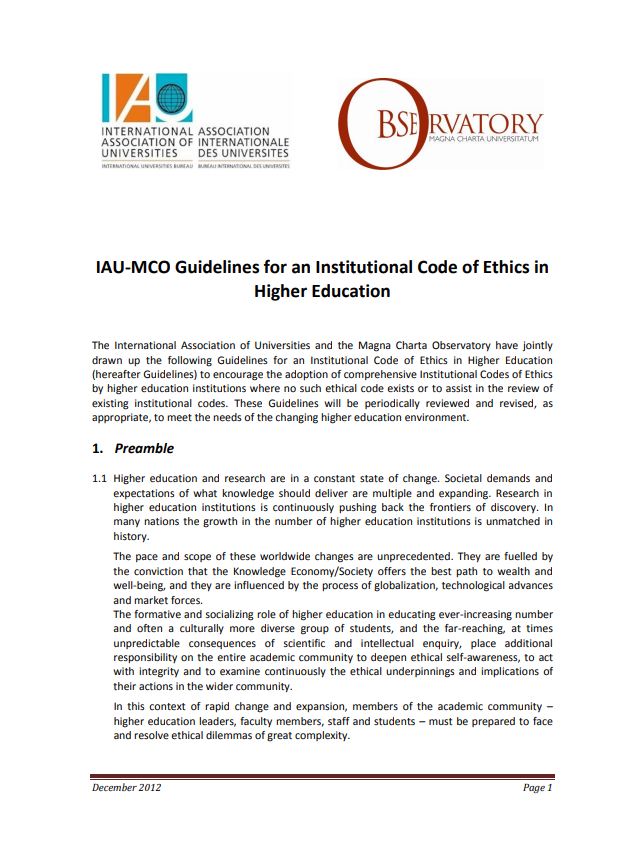
IAU-MCO Guidelines for an Institutional Code of Ethics in Higher Education
As encouraged by the participants in the 2010 IAU International Conference on Values and Ethics held at Mykolas Romeris University in Vilnius, IAU collaborated with the Magna Charta Observatory (MCO) on these Guidelines for an Institutional Code of Ethics in Higher Education. The joint IAU-MCO Working Group aimed to offer institutions a set of comprehensive Guidelines for the development or review of their own Code of Ethics rather than attempting the impossible – preparing a single Code that would be relevant in highly diverse higher education contexts. Thus, the purpose of the Guidelines is to serve as an instrument to develop, improve or strengthen policies and ethical codes in higher education institutions worldwide. The Guidelines were approved at the 14th IAU General Conference in 2012, as well as by the MCO Council.
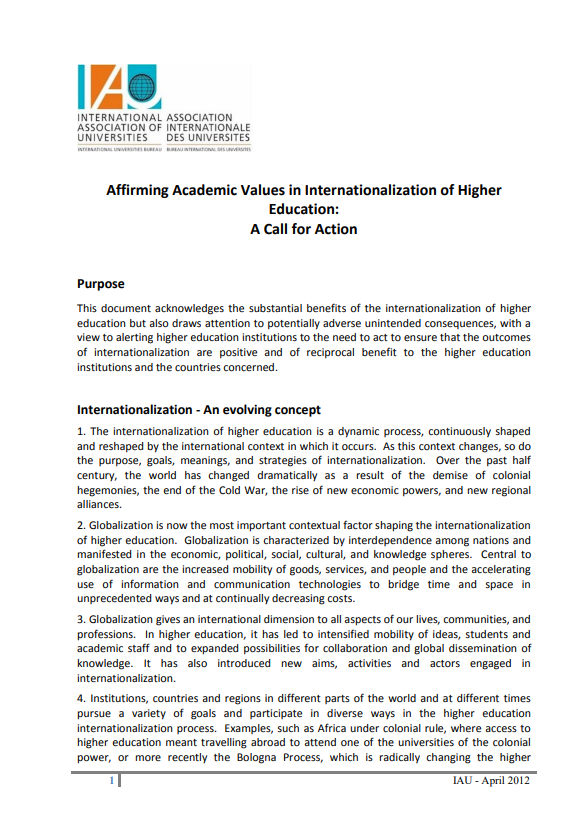
Affirming Academic Values in Internationalization of Higher Education: A Call for Action
The Call for Action approved by the IAU Administrative Board in 2012 articulates the Association’s viewpoint on the positive impacts of internationalization and the necessity of opening up higher education institutions and systems to perspectives from beyond national and regional borders. It also points out some of the dangers and adverse effects that the internationalization process can bring.
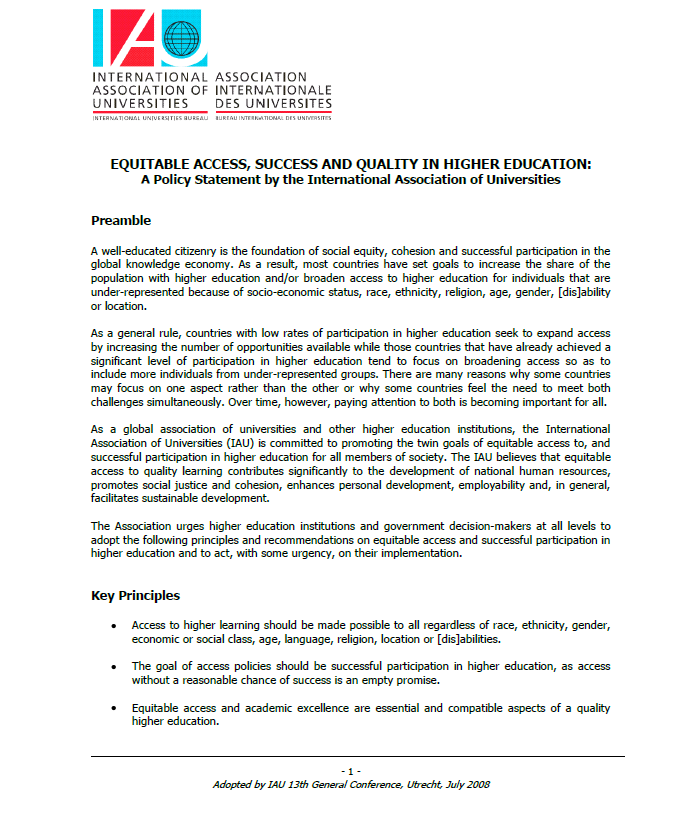
Equitable Access, Success and Quality in Higher Education
A well-educated citizenry is the foundation of social equity, cohesion and successful participation in the global knowledge economy. As a result, most countries have set goals to increase the share of the population with higher education and/or broaden access to higher education for individuals that are under-represented because of socio-economic status, race, ethnicity, religion, age, gender, [dis]ability or location.
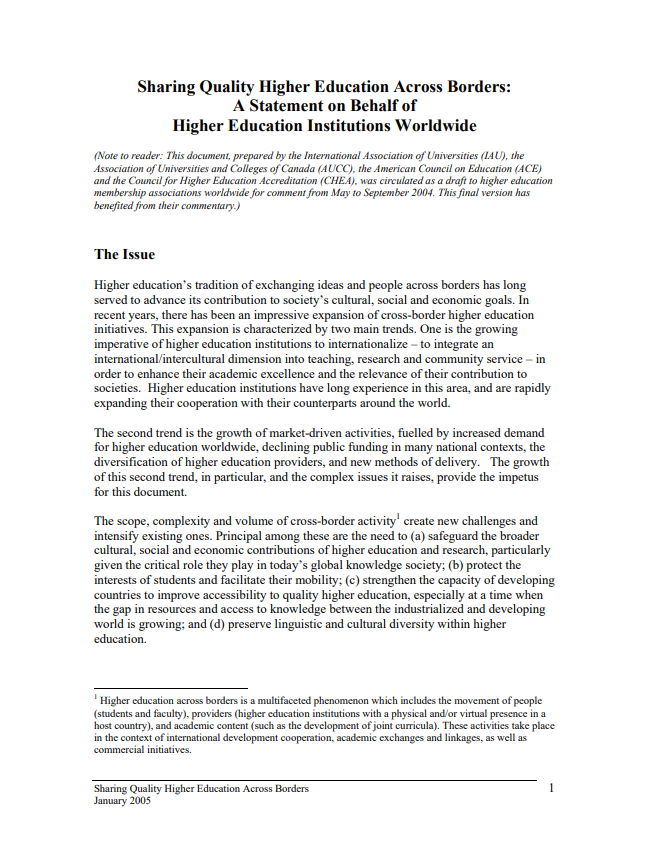
Sharing Quality Higher Education across Borders
The ways in which higher education institutions expand their activities internationally is changing rapidly and dramatically. Focusing most specifically on those aspects that involve crossing borders in order to expand the educational offer, and which appear to be more market-driven, IAU worked with three other associations to raise awareness of this type of activity and set out principles and recommendations that would maximize benefits for all who are involved.
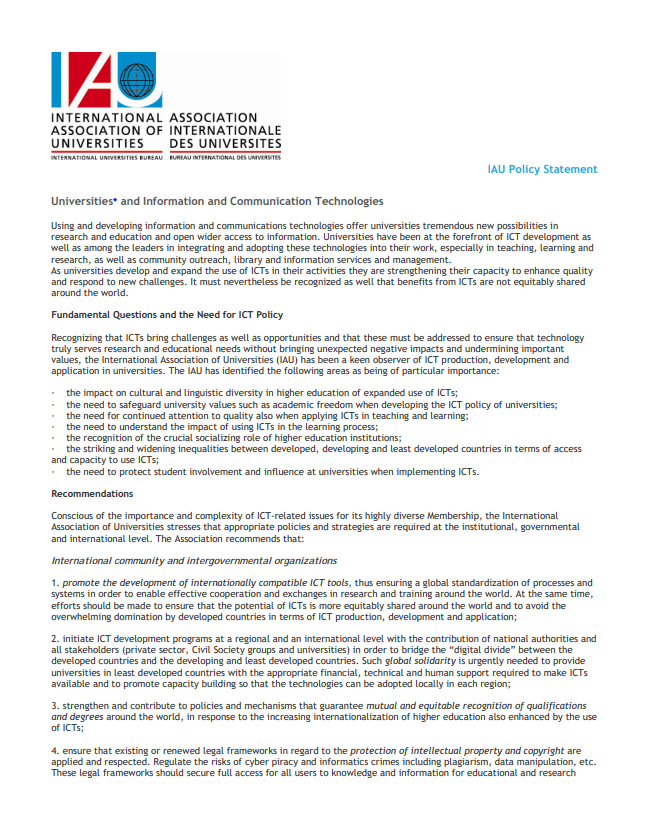
Universities and Information and Communication Technologies
In response to demands from its membership for further research and discussion on the impact of Information and Communication Technologies (ICTs) on the institutional learning and research environment, IAU set up a Working Group on this topic in 1995.
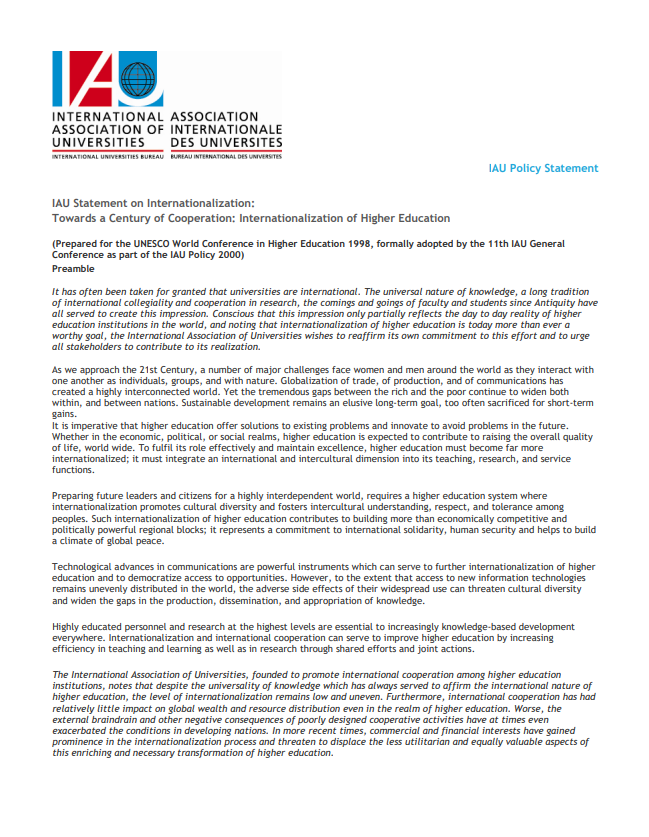
Towards a Century of Cooperation
The conviction that internationalization of higher education and cooperation among universities is not a luxury reserved for some or simply a means to improve others, but rather a necessity for all institutions of higher learning has been growing for some time. In part internationalization is also seen as a response to the globalization of the economy, of the production of goods, in fact of all kinds of human endeavors.
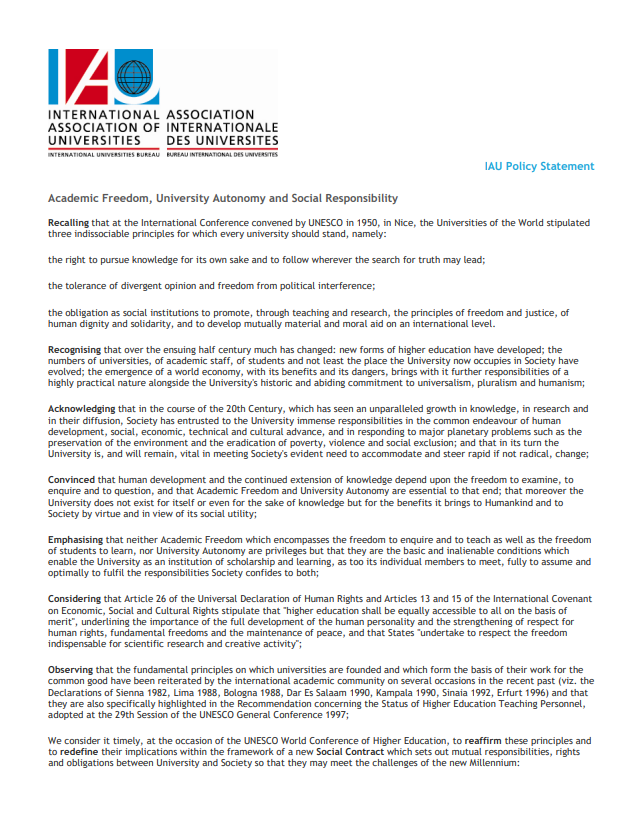
Academic freedom, Institutional Autonomy and Social Responsibility
Academic Freedom and University Autonomy are essential prerequisites for universities to meet their responsibilities to society and, at the same time, a means of strengthening the principles of pluralism, tolerance and academic solidarity between institutions of higher learning and between individual scholars and students. In 1997, UNESCO asked IAU to lead an initiative that aimed to protect these principles on an international level. In this context, the IAU statement advocates the elaboration of a new Social Contract between university and society and calls for a broadly recognised International Charter of mutual 6 IAU SPEAKS OUT rights and obligations, including adequate monitoring mechanisms for its application. The Statement was formally adopted by the IAU 11th General Conference in Durban, South Africa in 2000.
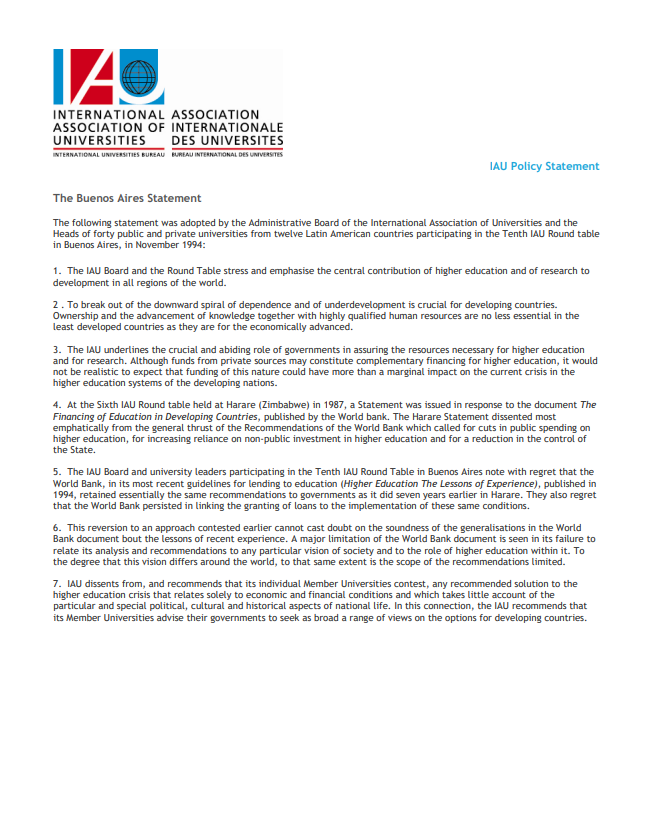
The Buenos Aires Statement on Higher Education Funding
Responding primarily to World Bank policy on higher education funding, as first outlined in the Bank’s 1987 report entitled The Financing of Education in Developing Countries and reiterated in the 1994 guidelines document entitled Higher Education: the Lessons of Experience, the Buenos Aires Statement, adopted by IAU in 1994, articulates the Association’s opposition to the key thrust of these policies.
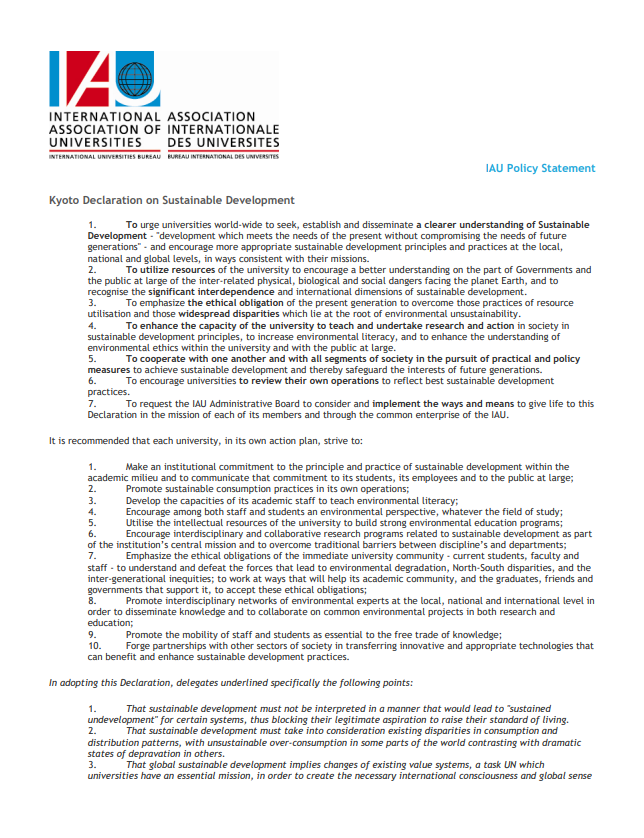
Kyoto Declaration on Sustainable Development
One of the first of its kind, prepared in 1993, the Declaration urges universities to become active in promoting sustainable development by first enhancing the understanding of the concept of sustainable development and second by adopting sustainable development principles and practices at the local, national and global levels. It underlines that sustainable development is based on principles of mutual understanding and notes that at a global level sustainable development implies changes in existing value systems.
